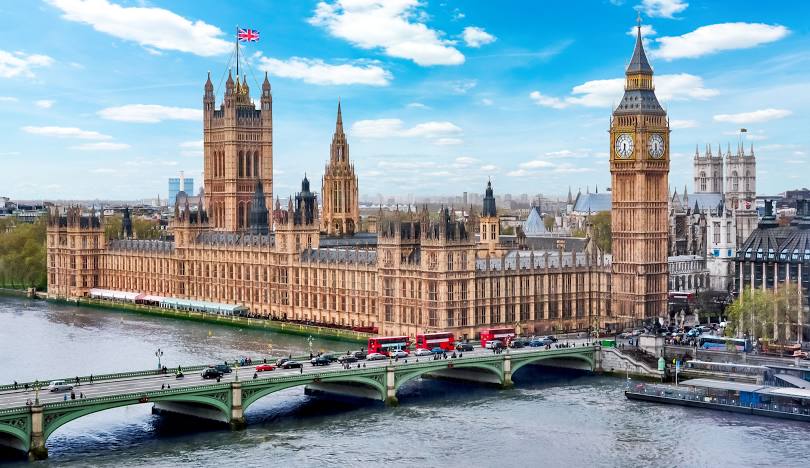The Chaos in Britain: An In-Depth Analysis
Britain has long been a nation celebrated for its stability and historical continuity. However, recent years have witnessed a surge of instability, marked by political upheavals, economic uncertainties, and social strife. To understand the chaos unfolding in Britain, we need to examine several key factors: political turbulence, economic challenges, social fragmentation, and external pressures.
Political Turbulence
The heart of Britain’s recent chaos lies in its political landscape. The Brexit referendum of 2016 was a pivotal moment, marking the beginning of a period of intense political discord. The decision to leave the European Union exposed deep-seated divisions within British society. The subsequent negotiations and the eventual departure in January 2020 led to a series of crises, including disputes over trade agreements, border controls, and regulatory alignments.
The political aftermath of Brexit saw frequent changes in leadership and a weakened sense of direction. The Conservative Party, which had spearheaded the Brexit campaign, faced internal fractures and leadership challenges. The Labour Party, meanwhile, struggled to offer a coherent alternative, often criticized for its lack of clarity and unity.
Additionally, the COVID-19 pandemic further exacerbated political instability. The government’s handling of the crisis was scrutinized, with accusations of mismanagement, inconsistent messaging, and a lack of preparedness. The pandemic also highlighted regional disparities, as devolved administrations in Scotland, Wales, and Northern Ireland pursued different strategies, sometimes at odds with Westminster’s approach.
Economic Challenges
Economically, Britain has been grappling with several significant issues. The immediate economic impact of Brexit was severe, leading to disruptions in trade, a decline in investment, and an increase in costs for businesses. The UK’s departure from the EU meant the loss of seamless access to one of the world’s largest trading blocs, leading to new trade barriers and logistical challenges.
The economic fallout from the COVID-19 pandemic compounded these difficulties. The UK experienced a sharp recession, with businesses closing and unemployment rising. Government interventions, such as the furlough scheme, provided temporary relief but also increased public debt to unprecedented levels. The challenge of managing this debt, alongside efforts to stimulate economic recovery, has been a persistent issue for policymakers.
Moreover, inflation has surged in recent years, driven by a combination of supply chain disruptions, increased energy prices, and geopolitical tensions. The cost of living crisis has hit households hard, contributing to social discontent and further straining the political system.
Social Fragmentation
The social fabric of Britain has also been tested in recent years. The divisions exposed by Brexit were not just political but also deeply social. The referendum highlighted stark contrasts between different regions, ages, and social classes. Areas that felt left behind or marginalized by globalization and the EU’s policies were more likely to vote for Brexit, while more affluent and urban areas tended to support remaining in the EU.
These divisions have been further exacerbated by economic hardships and political instability. The rise of populist sentiments, fueled by frustrations over economic inequality and perceived lack of control, has led to a more polarized society. Issues such as immigration, national identity, and social justice have become battlegrounds for ideological conflicts, further deepening societal rifts.
Additionally, the impact of the pandemic on mental health, education, and community cohesion has been significant. Lockdowns and social distancing measures disrupted normal life, leading to increased isolation, anxiety, and strained relationships. The education sector faced challenges with remote learning, potentially widening educational inequalities and affecting future opportunities for young people.
External Pressures
Britain’s position on the global stage has also influenced its internal chaos. The UK’s departure from the EU marked a significant shift in its international relationships. The need to redefine its role in the world, forge new trade agreements, and reassess its alliances has been a complex and ongoing process.
The global geopolitical landscape has added to the uncertainty. Tensions between major powers, such as the US, China, and Russia, have had ripple effects on Britain’s foreign policy and economic stability. Additionally, issues such as climate change, global health crises, and migration pressures have required coordinated international responses, further complicating Britain’s position.

Conclusion
The chaos in Britain is a multifaceted issue, arising from a confluence of political, economic, social, and external factors. The legacy of Brexit, compounded by the challenges of the COVID-19 pandemic, has created a turbulent environment. Political instability, economic difficulties, social fragmentation, and external pressures have all played a role in shaping the current state of affairs.

Understanding this chaos requires a nuanced perspective, acknowledging the interconnectedness of these factors and the ways in which they interact. While Britain faces significant challenges, the nation’s resilience and capacity for adaptation will be crucial in navigating this period of uncertainty and working towards a more stable and cohesive future.







